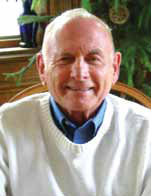by C. Norman Shealy, MD, PhD
 Other than the brain itself, the endocrine system is the most complex of all body systems. Most people think of the endocrine system in terms of thyroid, ovaries or testes, adrenal gland, and recognize the pituitary as the “master gland.” In actuality, the hypothalamus and the pineal gland are the central controllers, and the pancreas, intestines, parathyroids, heart, and the white blood cells all participate in producing a remarkable variety of hormones.
Other than the brain itself, the endocrine system is the most complex of all body systems. Most people think of the endocrine system in terms of thyroid, ovaries or testes, adrenal gland, and recognize the pituitary as the “master gland.” In actuality, the hypothalamus and the pineal gland are the central controllers, and the pancreas, intestines, parathyroids, heart, and the white blood cells all participate in producing a remarkable variety of hormones.
Edgar Cayce correlated the Lord’s Prayer to the seven chakra centers as a way to help open these centers and the endocrine glands that are related to them. For instance, the gonads are in the second chakra, which is associated with sexuality, finances, and security. The adrenal glands and pancreas are in the third chakra, which is associated with self-esteem as well as issues of responsibility. The thymus and heart are in the fourth chakra, which is related to love and forgiveness. The thyroid and parathyroids are in the fifth chakra, the center of will – ability to express needs and desires. The pituitary, pineal, and hypothalamus are all in the sixth chakra, the center of wisdom and intuition. All of the glands in a healthy person function well and with little effort. The great disturber of all endocrine function is stress. Stress is physical, chemical, emotional, or electromagnetic pressure beyond the safe reserves of a given individual.
• Major physical stressors: Inactivity – being inactive is as stressful as a broken leg; Physical or chemical injuries; Sunburn or other burns; Excess heat or cold
• Major chemical stressors: Sugar, corn syrup, corn fructose; Caffeine; Monosodium glutamate (MSG); Artificial trans-fats; Excess phosphorus, especially from soda pop; All artificial foods, flavorings, dyes, etc.; Mercury (fillings) and other metal toxins; Deficiency of any essential vitamin or mineral – the most common deficiencies are iodine, magnesium, B6, D3, and C
• Emotional stressors: Fear; Anger; Guilt; Anxiety; Depression
• Electromagnetic stressors: 60-cycle energy – TV, clocks, fluorescent bulbs, radios, refrigerators, furnaces, computers, cars, airplanes, high power lines, wiring in homes, telephones, cell phones, etc.; Nuclear energy and contamination
The reason I have enumerated all these is to emphasize the inevitable fact of stress, more so today than ever before. Stress of any kind and possibly in any amount may stimulate any endocrine gland to excess or deficient production of that gland’s hormones. Therefore over- or under-activity of any or all glands is a fairly common problem.
The two most common glandular problems are hypothyroidism and adrenal burnout. Virtually 100% of individuals have relative adrenal burnout long before age 70. DHEA, or dehydroepiandrosterone, reaches peak production around age 25. Cumulative stress begins to affect the production of DHEA by age 30 and every known disease is associated with low or deficient DHEA.
There are a number of ways to keep DHEA production healthy: Joy; Physical exercise; Sex; Sunshine; Meditation; Stress reduction;Magnesium lotion; A combination of vitamin C – 2 grams, and MSM – 1 gram (Youth Formula); Natural progesterone cream.
For optimal thyroid function, the most critical element is iodine. I suggest you take your oral temperature daily for a week, at least three hours after rising. If your temperature is below 98.6 degrees, you are probably hypothyroid, no matter what the blood test shows. If a physical exam has ruled out a palpable nodule in the thyroid gland, then add Iodoral, one tablet daily. If your temperature does not come up to normal within six weeks, you should try increasing the Iodoral to two tablets daily. If that does not work within another 6 weeks, you may need thyroid medication.
One other supplement may do more for your entire health and endocrine function than any other. If you have had a check-up and the routine blood tests are normal, you should take Vitamin D3, 50,000 units once a week and Vitamin K2, 100 mcg daily. But, above all, practice stress reduction for optimal function of body and mind. And remember, Mind is the Builder.
Good Day,
Since their are different types of Magnesium,
What Type of magnesium, (how Much), does the body need for Female Menopause,
and how much to balance with Calcium….
Thank You
Hello Betty,
Thank you for your comment. Edgar Cayce did not reference this specifically in any of his readings, and due to FDA regulation, we are unable to make any medical recommendations. Please consult with your medical physician. If you have any further questions, concerns, or would like more information, you may call and speak with Dr. Baar at 1-610-873-5343, Monday through Friday, 2:00 am – 4:30 pm ET.
Hello,
I was diagnosed with Addison’s Disease in 2007. In 2016 my sweetheart found a bio identical hormone from Switzerland which changed my life. That product disappeared for a while so I now take 25 mg Hydrocortisone daily.
Is there anything that I can do other than the above.
Thanks so much,
James
Hello James,
Thank you for your comment. Edgar Cayce did not reference Addison’s Disease specifically in any of his readings, and due to FDA regulation, we are unable to make any medical recommendations. Please consult with your medical physician.